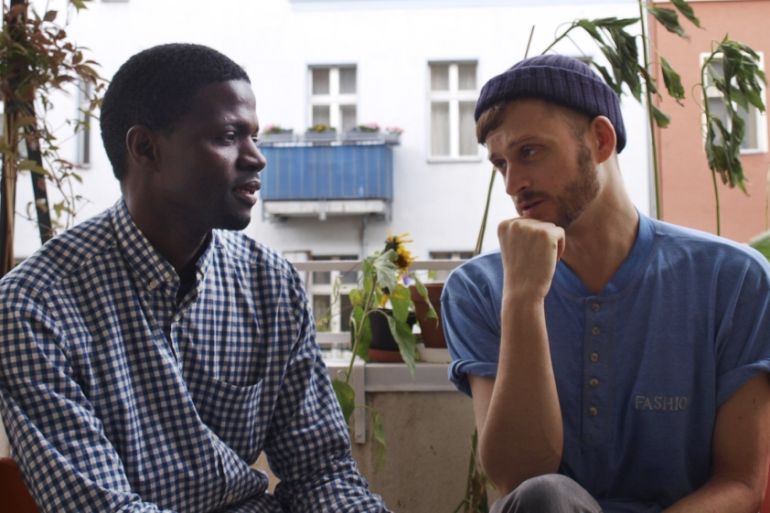German volunteers launch ‘Airbnb for refugees’
German group builds an ‘Airbnb for refugees’ allowing landlords to offer space in their homes to those fleeing wars.

A German group named Fluchtlinge Wilkommen, or Refugees Welcome, has built an “Airbnb for refugees” allowing Germans, Austrians, French and soon more Europeans to offer space in their homes to those fleeing wars in Africa and the Middle East.
Airbnb is a website for people to list, find and rent housing, rooms, or apartments. It has over a million listings in over 190 countries.
Keep reading
list of 4 itemsPalestinian Prisoner’s Day: How many are still in Israeli detention?
‘Mama we’re dying’: Only able to hear her kids in Gaza in their final days
Europe pledges to boost aid to Sudan on unwelcome war anniversary
| How does it work? |
|
Refugees Welcome was founded in November 2014. The Berlin-based website helps users who are willing to house refugees find someone who is a good match to be their new roommates.
Jonas Kakoschke, Refugees Welcome co-founder, told Al Jazeera that this is a chance for refugees to move out of mass housing.
“Mass housing is usually placed far outside the main cities which makes it really hard for the refugees to participate in German society. They are excluded and isolated, usually somewhere in a village or in small cities,” he said.
The site helps match rooms with refugees by using local charities and organisations and the site suggests anybody interested in getting involved to look towards micro-donations, crowdfunding and friends, as well as tapping government subsidies, as a way to pay for accommodations for their new guest.
A sister organisation was launched in Austria in January 2015, and recently reached France.
In France, the group created a new “room-finding” programme called Calm (Comme a la maison), where they connect volunteers to the refugees.
Just like Airbnb, those offering their homes are in charge of how long their guests can stay, which ranges from a month to one year.
The group said more than 780 Germans have signed up on their website, and more than 26 people have been placed in private homes so far.
![Jonas Kakoschke, right, and Bakary Conan chat as they pose for a photograph on the balcony of Kakoschke's flat in Berlin. Kakoschke gave shelter to Conan with his Refugees Welcome initiative. [AP]](/wp-content/uploads/2015/09/080b5cd6fbe04f27a19a294f13eed71b_18.jpeg)
The group said in a press release that most refugees they are helping come from Afghanistan, Burkina Faso, Kenya, Mali, Niger, Nigeria, Iraq, Iran, Pakistan, Russia, Senegal, Somalia, and Syria.
The people who have opened their doors for refugees are diverse: among them are PR consultants, carpenters and many students; they are between 21 and 65 years old.
More than half of all placements took place in flat shares.
In addition, married couples, single households and young families host refugees.
In Frankfurt for instance, a single mother is offering a private room to a young Syrian.
In approximately one-third of the cases, costs are covered by either the Job Centre or the Social Welfare Office.
Other flat shares come up for the rent privately and almost one quarter of the rents are paid for via micro-donations.
Germany anticipates taking in up to 800,000 people this year and is urging other European countries to take in more.
![Supplies are set up next to a welcome message in readiness for the arrival of refugees in Frankfurt's main railway station [EPA]](/wp-content/uploads/2015/09/033bba7bf6d84fe19806a8def0fb7c90_18.jpeg)